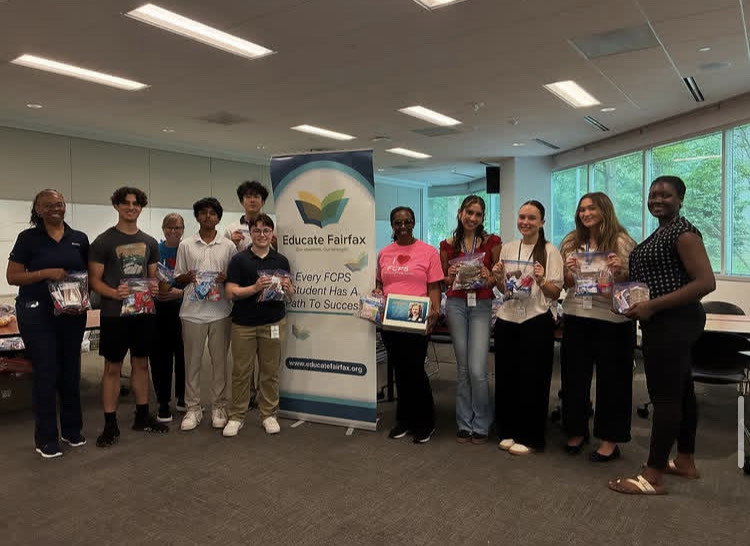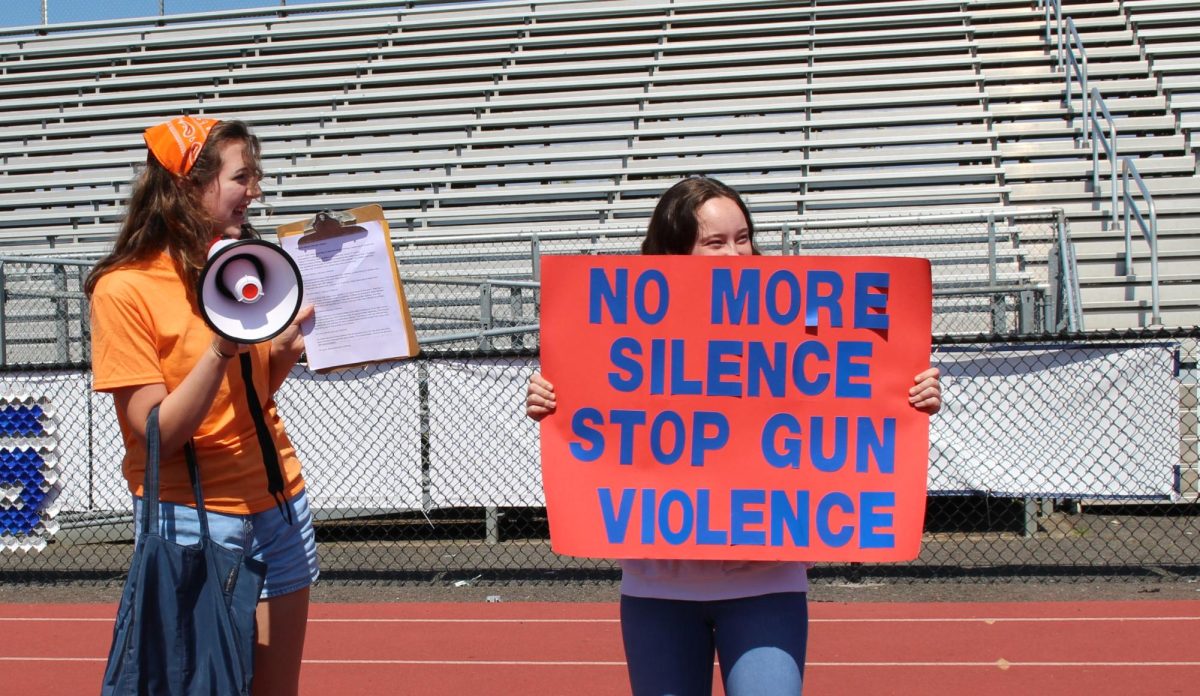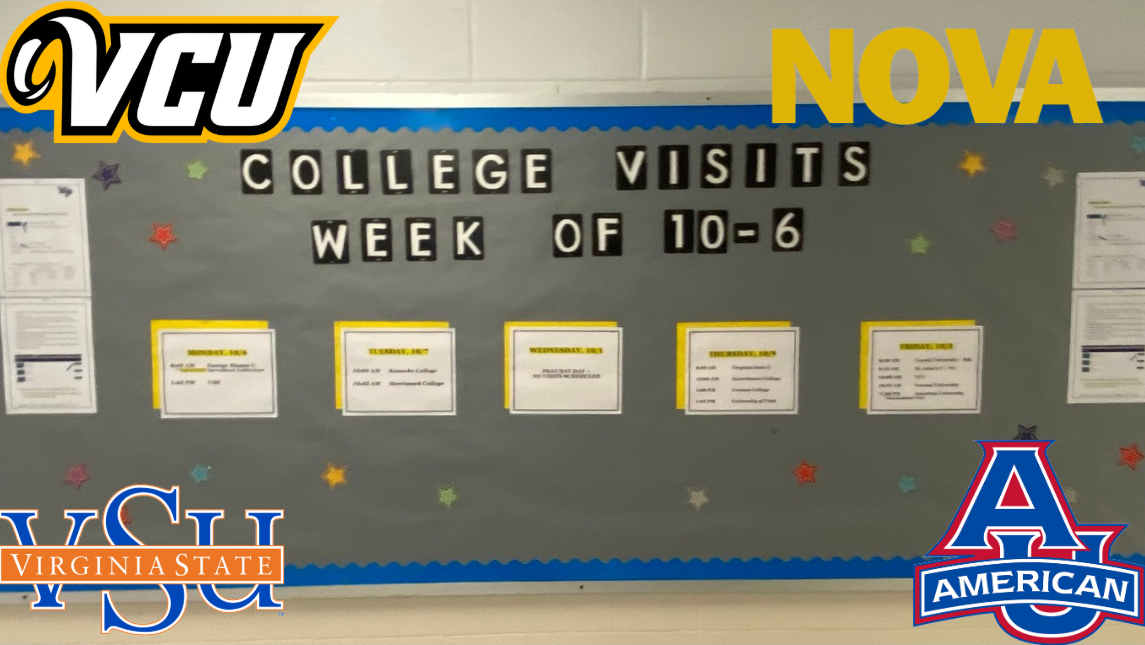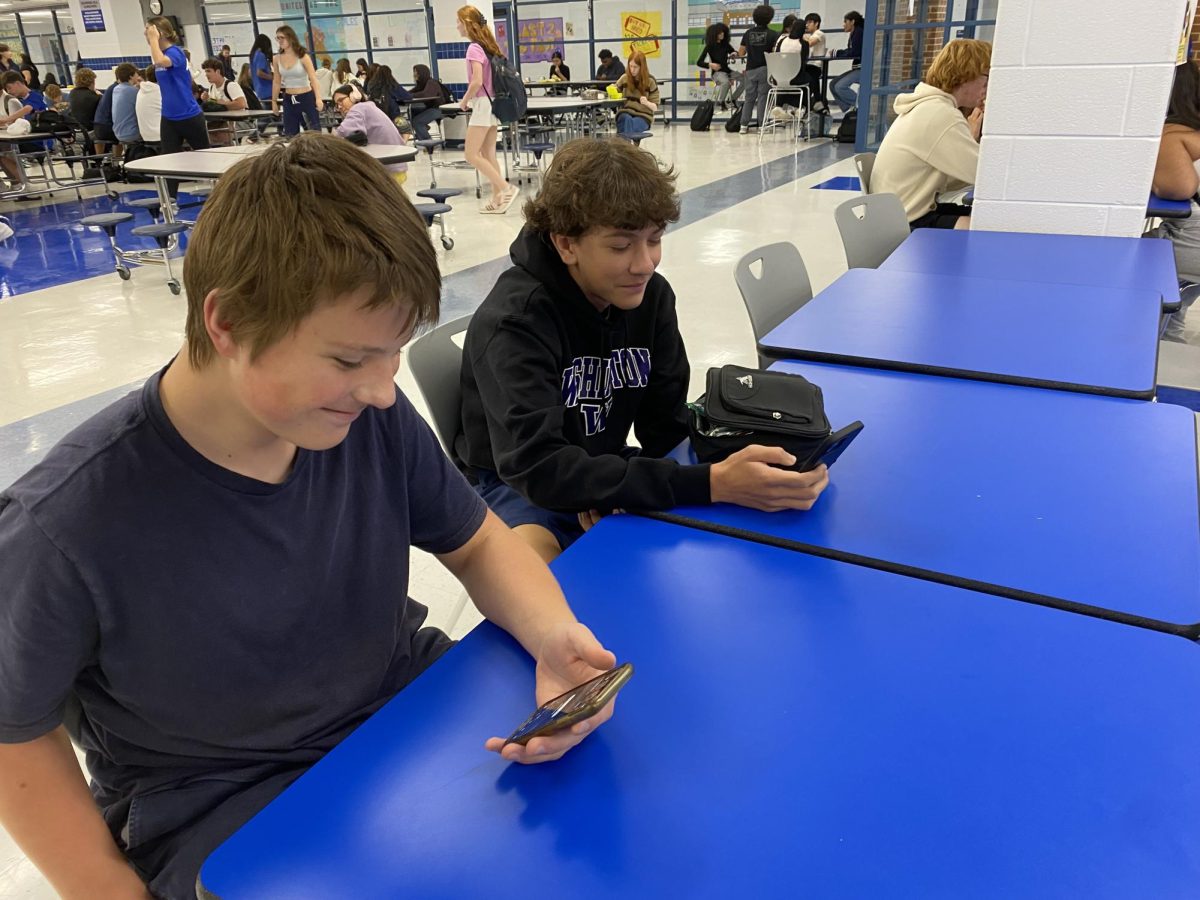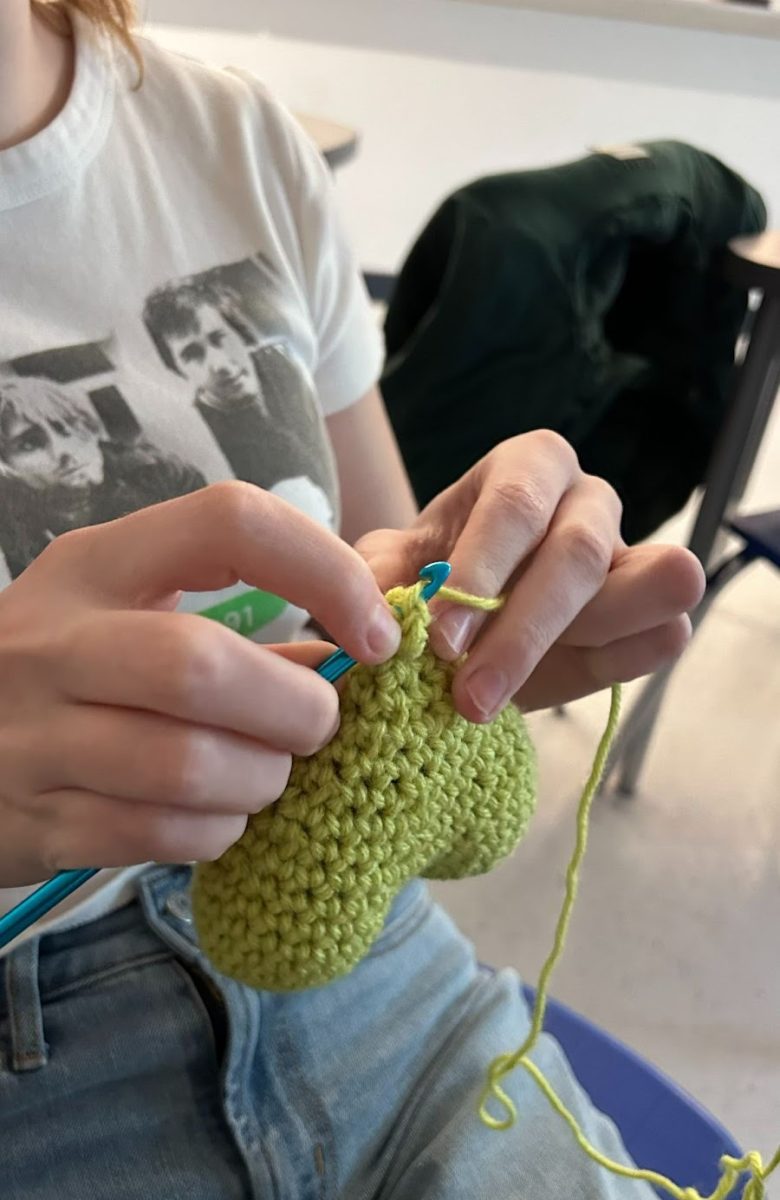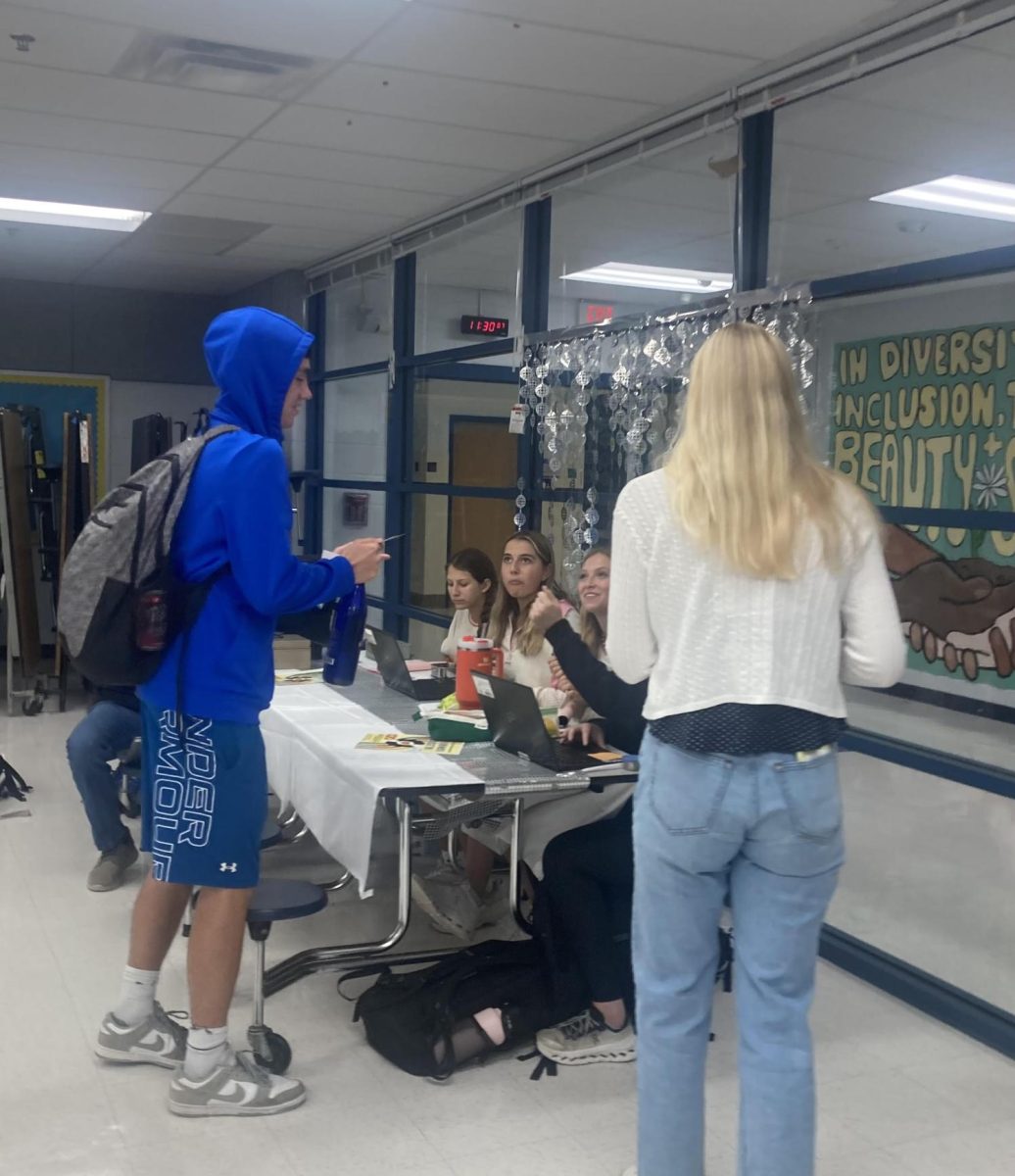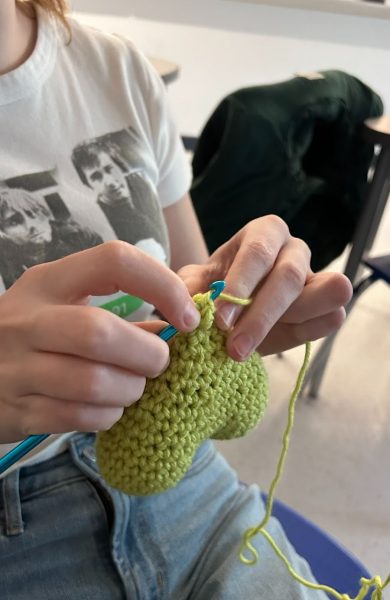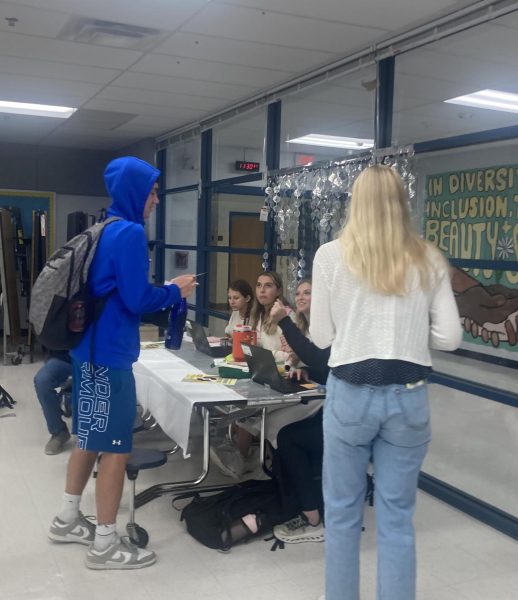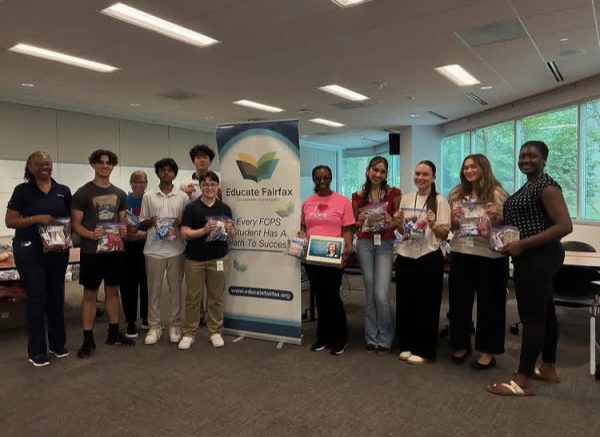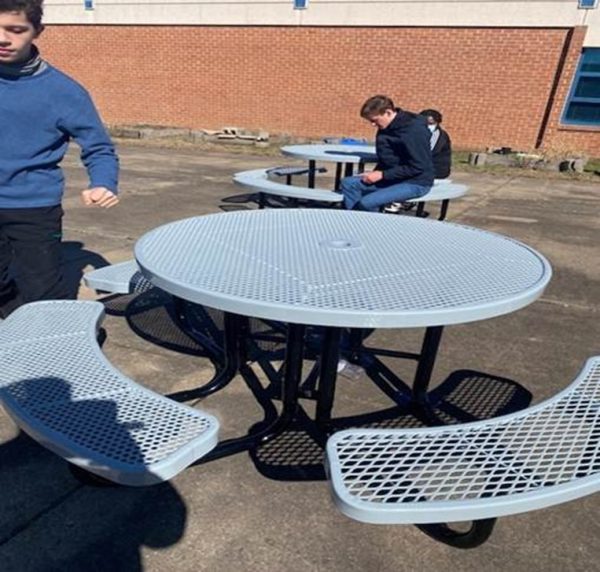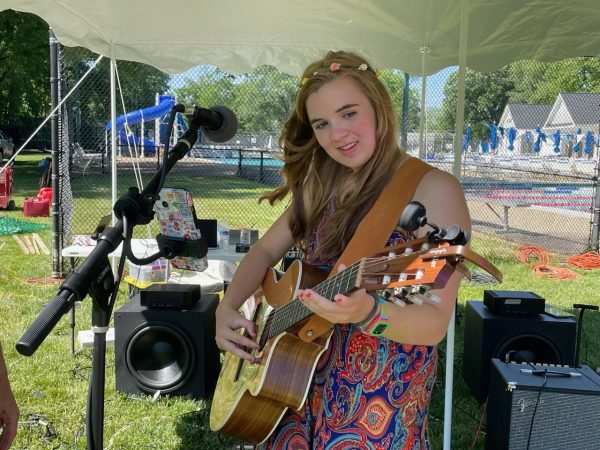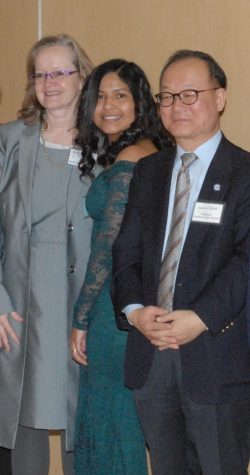The Great Debate: West Po Against the World
Seniors Elizabeth Hardin and Aaron Kopp will compete in the Tounament of Champions later this month. They are the first debate team from West Po to be invited to the event. Photo Credit: Sean Da Ros
Senior debaters Elizabeth Hardin and Aaron Kopp made West Po history by becoming the first ever debate team from the school to qualify for the prestigious Tournament of Champions. The tournament, hosted by the University of Kentucky from April 23-25, will take place virtually due to Covid-19 and include teams from around the world.
Although Hardin and Kopp expressed disappointment in the choice to go virtual for the tournament, Hardin is not worried about participating online. “I honestly don’t remember what it was like to be in person because it’s been … two years,” she said.
“I’ve never been to a high stakes tournament in person,” Kopp added.
There are two ways a debate team can reach the tournament. A team can place in the top 16 of the National Debate Tournament to qualify, or they can place well enough in certain recognized tournaments to receive a bid. Receiving two bids qualifies a team for the Tournament of Champions. Hardin and Kopp placed 12th in the NCFL Grand National Tournament last May, qualifying them for the Tournament of Champions.
This process means the tournament brings the best and brightest debaters, allowing it to earn a reputation as one of the most highly regarded high school debate tournaments.
“It’s kind of like the Olympics, but debate,” Hardin explained.
The format of the tournament includes a set of preliminary rounds, and the teams with the most wins from that move on to the single-elimination bracket, which determines the overall winner. In each round, two teams face each other. The round consists of opening constructive speeches, two sets of cross examinations with a rebuttal speech in between, and a final summary speech and closing speech.
Each team prepares their first speech in advance, but they write the other three speeches at the tournament. For the speeches written at the tournament, they have four minutes in total to write, which comes out to just over a minute to write each speech.
“During [the] round we’ll call each other and help each other write the speeches,” Kopp said.
After the speeches are over, a panel of three judges take a vote on which team they believe won the round. The team who receives a majority of the votes wins the round. To settle ties between teams with the same amount of preliminary rounds won, the team with the most total votes places higher.
To prepare, Hardin and Kopp spend a great deal of time researching their topic. They begin writing speeches as early as a month and a half in advance of the tournament, but even after they finish, the research never ends.
“I researched for the last tournament up until the day of the tournament, and then right the day after, I started researching for TOC [Tournament of Champions],” Kopp elaborated.
In some cases, current events greatly influence Hardin and Kopp’s tournaments. “One of our topics a while ago was on … Turkey’s presence in NATO, and it was right when Ukraine was being annexed,” Hardin said. “So we were doing research the day of as well, so we could update everything accordingly. So it really doesn’t end.”
Both Hardin and Kopp have exceeded all expectations in making it to the Tournament of Champions. “I never expected to get this far,” Hardin explained. “When I first started, McGlynn [West Po Debate Coach] actually told us, ‘you guys don’t have to worry about that [Tournament of Champions]. None of you are ever gonna qualify.’”
Ms. Kelsey McGlynn explained that she said this because of the rarity of public school teams like Hardin and Kopp qualifying for the Tournament of Champions.
“You can either qualify by … placing in the top 16 at Nationals, which is obviously pretty difficult to do or [through] your national circuit tournaments,” McGlynn explained. “National Circuit Tournaments require flying and paying hundreds of dollars every weekend, so the circuit is pretty thoroughly dominated by private school teams.”
“It’s not something you ever expect to happen to yourself,” Kopp shared. “But now it’s happening, and we’re gonna go against the best teams in the world.”
“I don’t necessarily want to win because I don’t expect to win,” Kopp added. “But I want to do something exceptional. I want to have a good speech that will actually mean something … that will be true and thoughtful. People talk about the Olympics forever. We will talk about this forever.”
“I just can’t really overstate not just how impressive the accomplishment is, but how impressive Aaron and Elizabeth each are as individuals,” McGlynn said. “They’re the kind of students, the kind of scholars, that, as a high school teacher, you worked your whole career hoping that you can help shape and mentor.”
Co-Editor-in-Chief Ethan Brodie is a senior at West Po in his third year of journalism. He enjoys traveling and learning about new cultures, writing, and...



